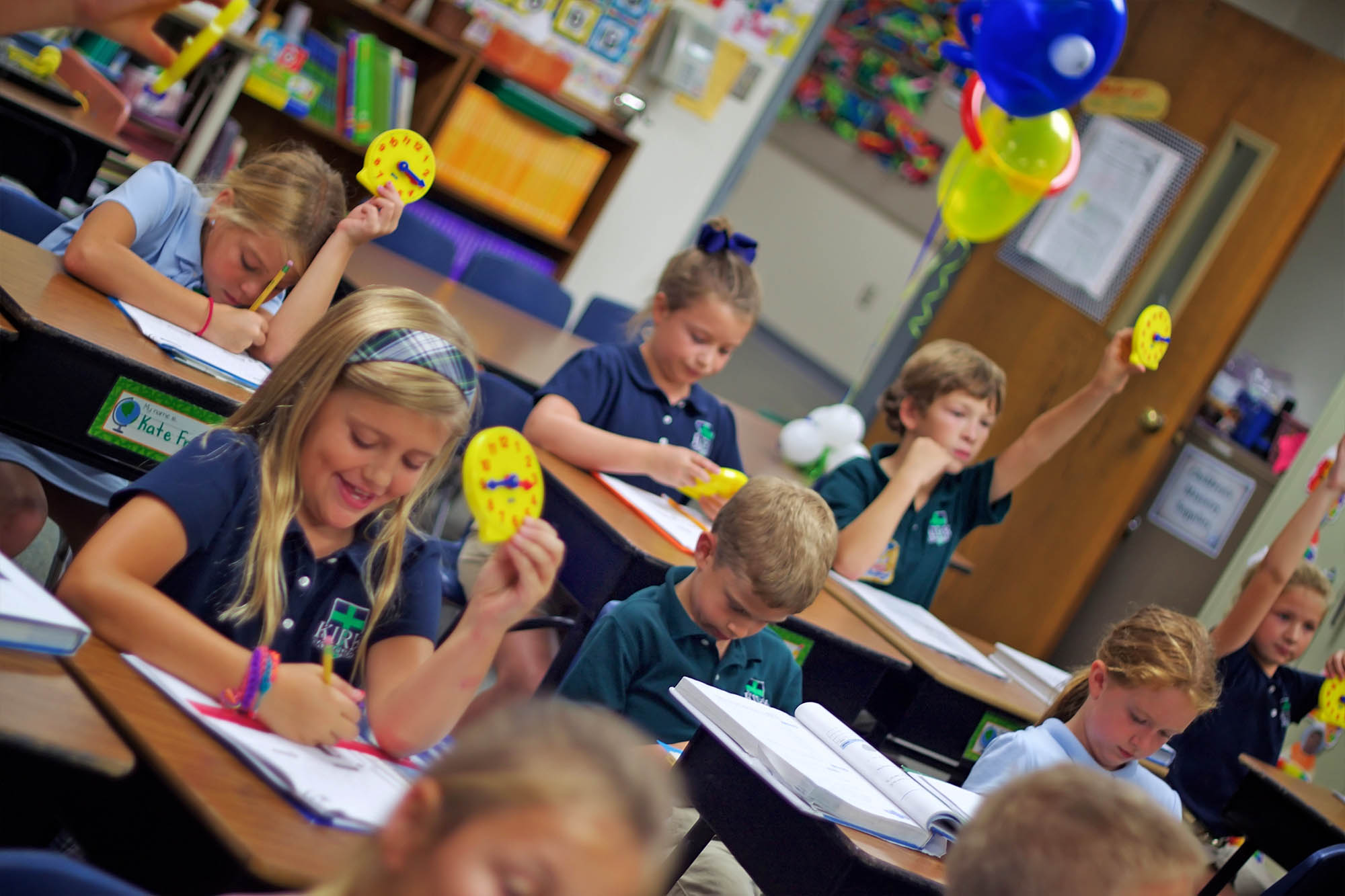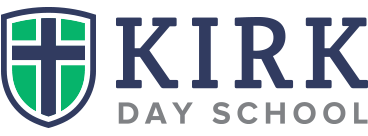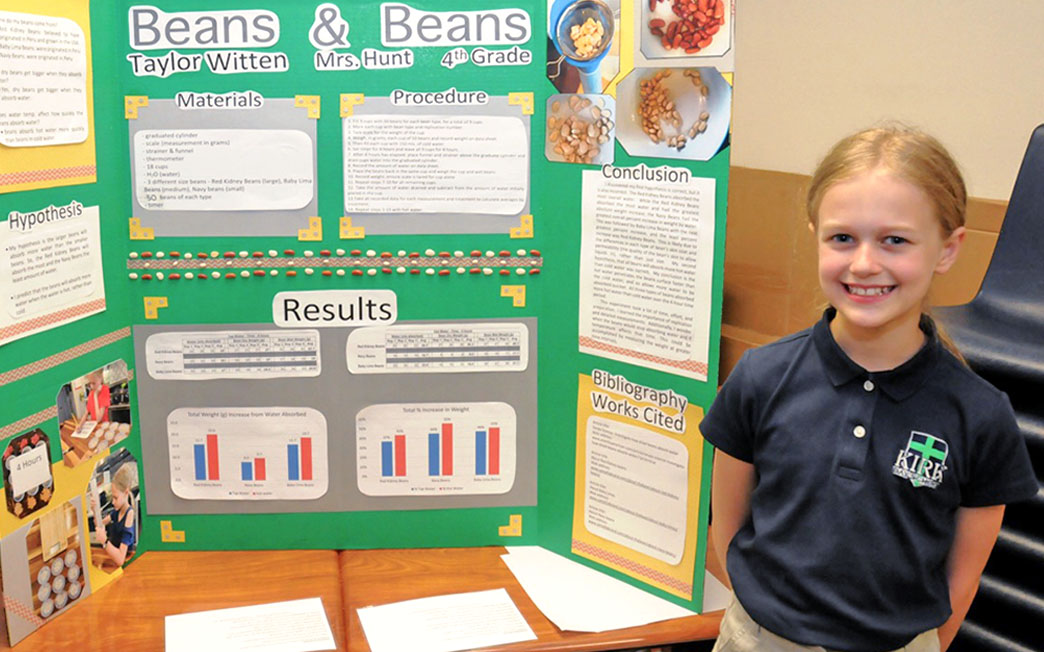
Teachers at Kirk Day School work with all students to develop critical thinking skills as they are challenged to examine everything they learn in light of scripture.
As a covenantal school, we recognize that our families have children with a wide range of learning needs, including those needing to be academically challenged and those identified as twice-exceptional. Consult services are available through the Educational Support Services (ESS) to assist classroom teachers and parents in developing program modifications to challenge the academically talented student through a variety of approaches, including but not limited to:
Enrichment
Alternative and Accelerated Curriculum
Compacting
Tiered Assignments
Peer Grouping
Telescoping
In general, students in kindergarten through grade three receive enriched instruction and opportunities for tiered assignments. Students in grades four through six may also be considered for alternative and accelerated curriculum, most notably in reading, math and spelling.
The KDS program is designed to enable the student to learn more challenging material at a different rate and level of thinking.
Differentiated instruction allows teachers to adjust teaching methods and/or materials to accommodate each student’s learning aptitude. In some instances, this includes changes in the instructional strategies, materials or expectations in a manner that actually alters the construct of the educational task. These modifications are so noted on a Gifted Individualized Support Plan (GISP).
The GISP is implemented by the classroom teacher within the general education setting. Through the individualized plan for instruction, the KDS Gifted Program addresses each student's unique needs for an accelerated and/or challenging academic program while offering a framework for attaining social and emotional growth.
Additionally, students and their families have opportunities to participate in a number of activities outside of the KDS classroom setting. These include Learning Labs and Academies through the Gifted Resource Council, College for Kids offered through the St. Louis Community Colleges, and Project MEGSSS. Students are also encouraged to participate in several after-school options which include Bricks 4 Kidz, IMACS, and S.T.E.A.M. The St. Louis Association for Gifted Education (S.A.G.E.) holds its monthly “Gifted Parent Support Group” meetings at KDS on a wide range of timely topics.
Eligibility
- Formal Gifted Evaluation (privately administered or through a public school district)
- Standardized Achievement Test
- Teacher recommendation and selected screenings
Final programming needs will be determined after a thorough review of necessary documentation.
“Children are gifted when their ability is significantly above the norm for their age. Giftedness may manifest in one or more domains such as; intellectual, creative, artistic, leadership, or in a specific academic field such as language arts, mathematics or science.”
“We recognize that the academically talented student has unique learning traits and needs.”

Frequently Used Terms in Gifted Education
The following terms are commonly used in programming for students identified as academically talented at KDS.*
Acceleration: A strategy of progressing through selected curriculum at rates faster or ages younger than the norm (e.g., a fifth-grade student taking sixth-grade math).
Compacting: An instructional technique that allows teachers to adjust curriculum for students by determining which students already have mastered most or all of the learning outcomes and providing replacement instruction or activities that enable a more challenging and productive use of the student’s time.
Enrichment: Activities that add or go beyond the existing curriculum. They may occur in the classroom or outside of the school setting.
Peer Grouping: A grouping assignment for gifted students in the regular heterogeneous classroom. Typically, two to four gifted students with similar needs, abilities, or interests are “clustered” in the same classroom, which allows the teacher to more efficiently differentiate assignments for a group of advanced learners rather than just one student.
Telescoping: To cover the same amount of materials or activities in less time, thereby allowing more time for enrichment activities and projects that better suit the interests, needs, and readiness levels of gifted students.
Twice-exceptional: A term used to describe a student who is both gifted and disabled. These students may also be referred to as having dual exceptionalities or as being gifted with learning disabilities (GT/LD). This also applies to students who are gifted with ADHD or gifted with autism.
*National Association for Gifted Children (NAGC)
Ready to apply?
Start the easy online application process today.


